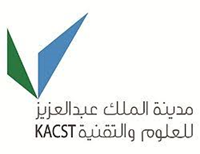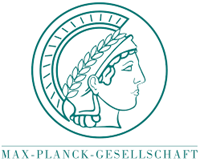Group Höppener
Group Höppener
About uitklapper, klik om te openen
The group of Höppener is working in the field of diabetes mellitus type 2, notably the role of the pancreatic islet hormone Islet amyloid polypeptide (IAPP) and its (pre-) fibrillary amyloid depositions, in islet ß-cell dysfunction. They have generated and characterized a transgenic mouse model, in which the amyloidogenic human IAPP is expressed in the islet ß-cells. Islet amyloid develops in these mice and contributes to the pathogenesis of DM2 by reducing the insulin producing capacity. This unique animal model is used for pioneering research with respect to the pathogenesis, diagnosis and therapy of DM2.
Group members uitklapper, klik om te openen
Group leader

dr. J.W.M. Hoppener Associate Professor
PhD student
Mohammed Asiri
Collaborations uitklapper, klik om te openen
Since 2017 close collaboration with the group of Dr. N Eijkelkamp within the Center for Translational Immunology (CTI), in the field of diabetic neuropathy.
Key publications uitklapper, klik om te openen
- Lips CJ, Höppener JW. Genetic testing for MEN1-whose responsibility? Nat Rev Endocrinol. 2012 ;8:575-6 View
- Khemtémourian L, Engel MF, Liskamp RM, Höppener JW, Killian JA. The N-terminal fragment of human islet amyloid polypeptide is non-fibrillogenic in the presence of membranes and does not cause leakage of bilayers of physiologically relevant lipid composition. Biochim Biophys Acta. 2010; 1798:1805-11 View
- Engel MF, Khemtémourian L, Kleijer CC, Meeldijk HJ, Jacobs J, Verkleij AJ, de Kruijff B, Killian JA, Höppener JW. Membrane damage by human islet amyloid polypeptide through fibril growth at the membrane. Proc Natl Acad Sci U S A. 2008; 105:6033-8. View
- Höppener JWM, B Ahrén, CJM Lips. Islet amyloid and type 2 diabetes mellitus. The New England Journal of Medicine 2000; 343:411-9. View
- Höppener JWM, C Oosterwijk, MG Nieuwenhuis, Posthuma G, Thijssen JH, Vroom TM., B Ahrén, CJM Lips. Extensive islet amyloid formation is induced by development of type 2 diabetes mellitus andcontributes to its progression. Pathogenesis of diabetes in a transgenic mouse model. Diabetologia 1999; 42:427-34. View
Grants uitklapper, klik om te openen


| 2017-2021 - Government of Saudi Arabia, King Abdulaziz City for Science and Technology Grant for PhD student (Mohammed Asiri) | |
|---|---|
| 2016-2020 - Max Planck Institute for Biophysical Chemistry |
Research program uitklapper, klik om te openen
Infection and Immunity
Research interests uitklapper, klik om te openen
Diabetes mellitus type 2
Pancreatic islets
Islet amyloid
Pathological protein aggregation
Transgenic mouse models
Anti-amyloid therapy
Jo Höppener
Phone: 088-7554987
Location
Wilhelmina kinderziekenhuis (WKZ)
Room KC 02.085.2

